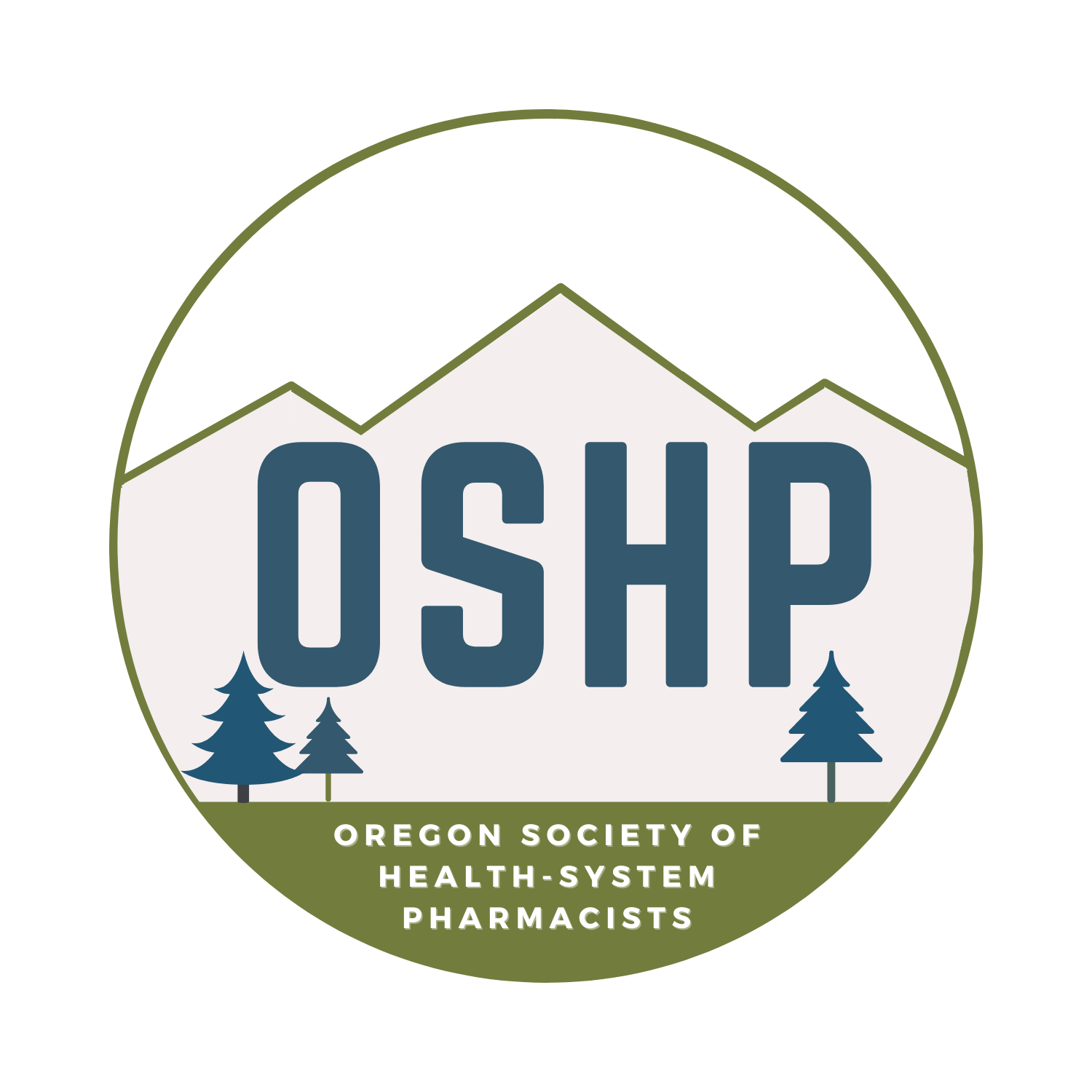|
2026 Annual Seminar Schedule at a Glance
*Seminar Schedule Subject to Change.
Friday, April 24, 2026
12:00pm – 6:00pm
Registration Open
12:30pm – 2:00pm
Presidents Lunch
1:00pm
Opening Remarks
1:05pm – 2:05pm (General Session)
Oregon Pharmacy Formulary Update
Speaker(s): Courtney Sellers and Crystal Sharp
CE Type: Disease/Drug Therapy Related
2:10pm – 3:10pm (General Session)
Preceptor Development
Speaker(s): Maddie Frye and Ryan Gibbard
CE Type: Disease/Drug Therapy Related
3:10pm – 3:30pm
Break – Move to Heritage/Landmark
3:30pm – 4:30pm (Non-CE Session)
IRC Presentation
Speaker(s): TBD
4:40pm – 5:40pm
Pearls
Speaker(s): TBD
CE Type: Disease/Drug Therapy Related
5:45pm – 7:00pm
Welcome Reception with Exhibitors
Saturday, April 25, 2026
6:00am – 7:00am
Fun Run
7:00am – 5:30pm
Registration Open
7:30am – 8:00am
Continental Breakfast with Exhibits
8:00am – 8:05am
Opening Remarks
8:10am – 9:10am (General Session / Opening Session)
Oregon Indian Country: Tribal Sovereignty’s Impact on Health Care
Speaker(s): Claymore Kills First
CE Type: Cultural Competency
9:15am – 10:15am (General Session)
The Whole Kidney and Caboodle: Incorporating Guideline-Based Recommendations to Identify and Manage Chronic Kidney Disease and Reduce Cardiovascular Risks
Speaker(s): ASHP Guest Speaker
CE Type: Disease/Drug Therapy Related
10:15am – 11:15am
Break – Exhibits Open
Poster Session
11:30am – 12:30pm
Lunch Buffet with Legislative Update and Office Induction
12:30pm – 2:00pm (General Session)
Oregon Emergency Preparedness
Speaker(s): Amy Cervan and Amber Taylor
CE Type: Patient Safety
2:00pm – 2:30pm
Break – Refreshments, Section Networking, Fundraising
2:30pm – 3:30pm (Track A)
PrEPared in Primary Care: Putting PrEP into Practice
Speaker(s): Jess Potter
CE Type: Disease/Drug Therapy Related
2:30pm – 3:30pm (Track B)
Rewriting Disease: Gene Therapy and Gene Editing in Today’s Pharmacy
Speaker(s): Roberts Sigrid and Nicole Carter
CE Type: Disease/Drug Therapy Related
3:35pm – 4:35pm (Track A)
GDMT Without Gaps: Building and Maintaining Optimal Therapy Across the Patient Journey
Speaker(s): Alyssa Rabon
CE Type: Disease/Drug Therapy Related
3:35pm – 4:35pm (Track B)
FDA-Approved Anti-Amyloid Therapy for Alzheimer's Disease: New Evidence and Practice Updates
Speaker(s): Marketa Marvanova
CE Type: Disease/Drug Therapy Related
6:00pm – 8:00pm
Awards Celebration
Doors & Auction Open: 6:00pm
Dinner Service Begins: 6:30pm
Sunday, April 26, 2026
7:30am – 8:30am
Breakfast and Registration
8:00am – 8:05am
Opening Remarks
8:05am – 9:05am (General Session)
BOP Law Update
Speaker(s): Gary Runyon
CE Type: Law
9:10am – 10:10am (General Session)
Hypertension 2025 Guideline Update
Speaker(s): Abby Frye
CE Type: Disease/Drug Therapy Related
10:15am – 10:30am
Break
10:30am – 11:30am (General Session)
Deprescribing Therapy
Speaker(s): Katherine Marks
CE Type: Disease/Drug Therapy Related
11:30am – 11:40am (General Session)
Closing Remarks
11:45am
Seminar Ends
*Schedule, topics, presenters and CE Type schedule to change.
|
